August 19, 2019
World Humanitarian Day 2019: Let’s celebrate Humanitarian Women
Today is the 10thanniversary of the World Humanitarian Day, and this 2019 is dedicated to celebrating Women Humanitarians who have contributed in making the world a better place. This campaign recognises how women strengthen the delivery of aid all over the world with a uniqueness and perseverance that only they have.
According to the UN, when women are included in humanitarian action, the entire community benefits. Only the female population can understand how limited healthcare is after a crisis, especially for mothers. They also know how livelihoods of women in this situations are the hardest, often suffering from violence, lack of education and monetary problems. And they generally are the ones who dedicate their lives to help find a solution. That is why they deserve to be celebrated.
HAD is the learning and development arm of Islamic Relief Worldwide, and we believe that Humanitarianism is one of the fundamental principles of Muslim religion. Islam motivates and intensifies the concrete action in all humanitarian areas, because giving our time or money to others make us not only better people, but also closer to Heaven. The focus on food aid, orphans, refugees and long-lasting humanitarian acts have been some of the tasks that have been a priority during the past 30 years, and women have been the key to accomplish it.
As HAD, our mission is to enhance the knowledge and skills of the humanitarian and international development sector. That is why we want to celebrate the wonderful humanitarian work that our female staff does every day.
For the past three years, our team has been providing capacity-building training that strengthens Syrian NGOs that work directly on the frontline in Syria and its neighbouring countries. A recent training we delivered consisted of a three-day research training, where participants learned about the basics of research, why we need it in the humanitarian sector, but especially how to conduct research under difficult circumstances. This training has been conducted by Dr Jennifer Philippa Eggert, our Head of the Research & Development department, that has over 15 years of experience working as a researcher in the Middle East, Europe and South Asia.
What does being a Humanitarian mean to you?
Jennifer: “It would be wrong not to use some of the privileges we enjoy to at least try and make a difference for (and with) the people who have a right to our solidarity, compassion and support”.
Our Leadership Development Programme (LDP) is a five-day course that creates a space to think about leadership styles, how to be effective while being a leader and how an organisation can thrive as a result of improved strategic leadership. This training has been experienced by our TTT Trainer Shereen Salih, who understands the importance of how to practise good leadership behaviours with different tools and techniques.
For Shereen, being a Humanitarian means that “you are working to improve human welfare, regardless of location, race and religion. The name ‘humanitarian’ is just meant to describe human beings, but I believe it also means we need to care about animals and vegetation, meeting with sustainable development. It is also about creating a world where no one is left behind and everyone can live with dignity and opportunity. Being a Humanitarian means believing that you can make a difference.”
To maintain humanitarian work as amazing as it is, it is necessary than NGOs have sufficient risk assessment and preparation, and that is possible in our Safety and Security in the fieldtraining. This four-day programme, developed by our L&D partner, Diane Conway, was created for participants to understand the difference between safety and security, learn to identify possible threats and also describe the role of preventive measures in personal security. This course also includes training with realistic simulations, so that participants can practice appropriate reactions to different scenarios with basic self-defence techniques.
Sonya Sanghera is our Marketing and Communications Manager in HAD. She has extensive experience working in the public, humanitarian and international development sector. Sonya drives strategic, ethical marketing and communication strategies that achieve brand awareness and credibility, which has helped INGOs and NGOs turn business objectives into tangible marketing results.
For Sonya, being a Humanitarian “is simply somebody who deeply cares. We have always had this unfathomable need to be of service to the most vulnerable and use anything in our means to combat social injustice around the world, so that we can ensure a long term and sustainable impact. We preserve human dignity and fight for the access to birth-rights. Humanitarians are aware that we are only on this earth for a short time, so we utilise our energy for something meaningful and truly worthwhile.”
For HAD, it is vital that we develop future humanitarian female leaders that will make a difference in the sector, so we want to encourage that we don’t just celebrate them today, but every day.
Share your story or of women you admire, on Twitter by using #WomenHumanitarians or #WHD2019. We want to hear from you!
Written by Gabriela Hagedorn
Marketing and Communications Intern
References:






